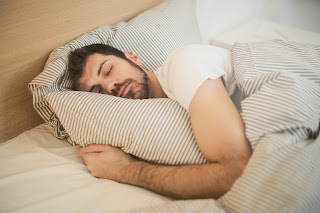How to Get a Good Night's Sleep
Sleep is essential for good health. It allows your body to rest and repair itself, and it helps you to function at your best both physically and mentally. However, many people struggle to get a good night's sleep. If you are one of these people, there are a number of things you can do to improve your sleep habits.
1. Establish a regular sleep schedule
One of the best things you can do for your sleep is to establish a regular sleep schedule and stick to it as much as possible, even on weekends. This means going to bed and waking up at the same time each day, even if you don't get a full night's sleep. Over time, your body will start to adjust to this schedule and you will find it easier to fall asleep and wake up at the desired times.
2. Create a relaxing bedtime routine
A relaxing bedtime routine can help you to wind down before bed and make it easier to fall asleep. This might include taking a warm bath, reading a book, or listening to calming music. Avoid watching TV or using electronic devices in the hour before bed, as the blue light emitted from these devices can interfere with sleep.
3. Make sure your bedroom is dark, quiet, and cool
Your bedroom should be a place where you can relax and unwind. To create a restful environment, make sure your bedroom is dark, quiet, and cool. You may need to use blackout curtains, earplugs, or a fan to create the ideal environment for sleep.
4. Avoid caffeine and alcohol before bed
Caffeine and alcohol can both interfere with sleep. Caffeine is a stimulant that can make it difficult to fall asleep, while alcohol can disrupt sleep later in the night. It is best to avoid these substances in the hours leading up to bedtime.
5. Get regular exercise
Regular exercise can help to improve sleep quality. However, it is important to avoid exercising too close to bedtime, as this can make it difficult to fall asleep. Aim to exercise at least 30 minutes a day, but not within 3 hours of bedtime.
6. See a doctor if you have trouble sleeping
If you have tried the above tips and you are still having trouble sleeping, it is important to see a doctor. There may be an underlying medical condition that is causing your sleep problems. A doctor can help you to identify the cause of your sleep problems and develop a treatment plan.



